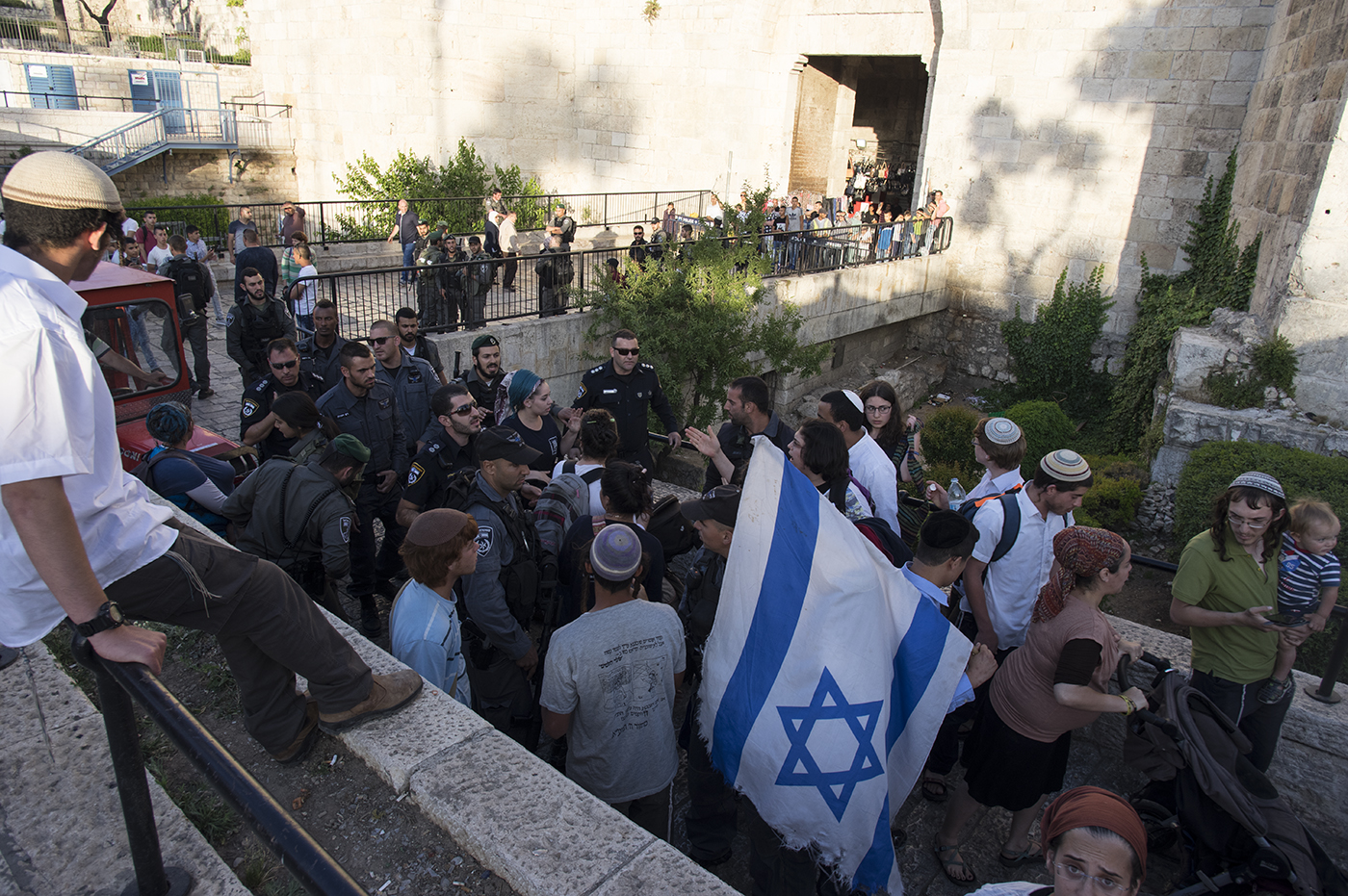Tag: Ethnic Cleansing
-
Hebron under selective and racist siege
2nd July 2016 | International Solidarity Movement, al-Khalil team | Hebron, occupied Palestine The southern West Bank city of occupied al-Khalil (Hebron) has been put under siege by Israeli forces – exclusively for Palestinians. Israeli forces declared a complete closure of the city as a ‘security measure’, closing all entries and exits into the city…
-
Curfew on Hebron neighborhoods imposed by Israeli forces
2nd July 2016 | International Solidarity Movement, al-Khalil team | Hebron, occupied Palestine Israeli forces, on 30th June 2016 enforced a complete curfew on several neighborhoods in occupied al-Khalil (Hebron). Deliberately, this curfew was designed to be imposed only on the Palestinian population, with the expressive goal of allowing settlers to move around these neighborhoods…
-
Two injured with live ammunition as Kafr Qaddum celebrates five years of demonstrations
1st July 2016 | IWPS | Kafr Qaddum, occupied Palestine The 1st July 2016, the last Friday in Ramadan, marked the fifth anniversary of Kafr Qaddum’s demonstrations. The Israeli military were present in the village and firing rubber coated steel bullets prior to the start of the demonstration. The soldiers continued to use full force…



